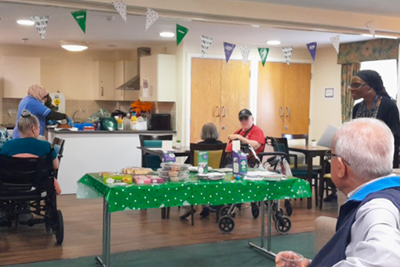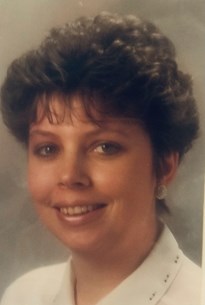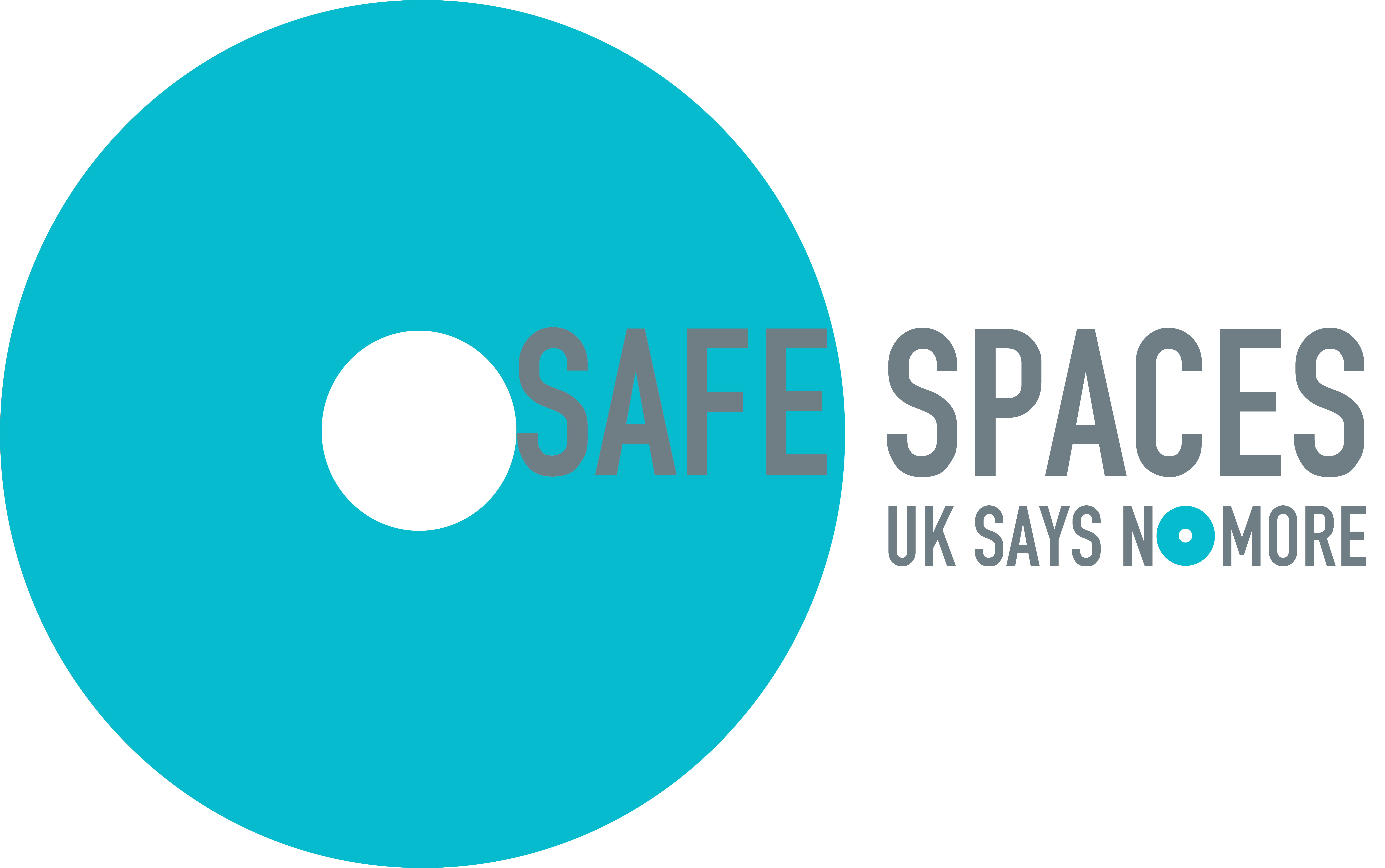BLOG: Older persons scheme coffee morning raises £250 for charity
12 December 2022
By Caroline Emerure, Scheme Manager at Willow House, and Anne Melia, resident at Willow House
 Willow House, one of our older persons schemes in Wembley, recently hosted a Macmillan Cancer Support coffee morning event with residents, raising a total of £250 for people living with cancer. Residents and guests were treated to a selection of cakes as well as mugs of tea, coffee, hot chocolate and soft drinks. It was a team effort, with two residents from nearby older persons scheme Corsham House donating a lovely homemade coconut cake. Carers from partner agency London Care also kindly made banana, walnut and fruit tin loaves and a vanilla sprinkled tray bake for all to share.
Willow House, one of our older persons schemes in Wembley, recently hosted a Macmillan Cancer Support coffee morning event with residents, raising a total of £250 for people living with cancer. Residents and guests were treated to a selection of cakes as well as mugs of tea, coffee, hot chocolate and soft drinks. It was a team effort, with two residents from nearby older persons scheme Corsham House donating a lovely homemade coconut cake. Carers from partner agency London Care also kindly made banana, walnut and fruit tin loaves and a vanilla sprinkled tray bake for all to share.

There was lots of chat and laughter, and it was great to see colleagues, residents and partner agencies come together to support a great cause! We played a variety of quizzes and games including ‘find Colin the Caterpillar’ who was hiding under the bookcase when we, eventually, found him with a big smile on his face! One resident at Willow House donated £80 - a lovely surprise and just the icing on the cake!
Caroline Emerure, Scheme Manager at Willow House
Anne Melia, a Willow House resident, was one of the people who took part in the coffee morning. In the blog below, she kindly shares more about her personal connection to the charity, and why this event meant a lot to her:

My name is Anne Melia and I’ve lived in Willow House for over a year now. I had a special reason for taking part in the recent coffee morning to raise money for Macmillan’s on-going cancer care projects, because my niece, Sue Sharp, is a Macmillan nurse and trainer.
Anne Melia, Willow House resident
 Here is Sue's story. From an early age, Sue (pictured right) wanted to be a nurse. So, having completed secondary school, she applied to and was accepted at St Bartholomew Hospital (Barts) School of Nursing. After four years, Sue completed her training and started her nursing career. She spent a number of years as a professional nurse. From the beginning, she specialised in the care of children, especially those with life-threatening illnesses, in particular the many forms of cancer.
Here is Sue's story. From an early age, Sue (pictured right) wanted to be a nurse. So, having completed secondary school, she applied to and was accepted at St Bartholomew Hospital (Barts) School of Nursing. After four years, Sue completed her training and started her nursing career. She spent a number of years as a professional nurse. From the beginning, she specialised in the care of children, especially those with life-threatening illnesses, in particular the many forms of cancer.
During her time in London, Sue met her future husband, Lee. They married and decided to settle in Worcester. Following their move, Sue decided on a career change. Because of her extensive experience with cancer, she decided to study advanced nursing procedures at Worcester Royal Hospital and become a Macmillan Clinical Nurse Specialist (CNS).
According to Sue, Macmillan nurses are specialist nurses who work in different areas of cancer treatment. They care for people with cancer, from when they’re first diagnosed. Nurses like Sue generally spend up to an hour in someone’s home, providing information and advice about the types of cancer, treatment options, possible side effects, and how to manage pain and control symptoms. They also provide emotional support for people with cancer and their families. They may also work in hospitals, hospices or in the community.
Some Macmillan nurses specialise in a very specific area of cancer care and have a different job title – such as being a Macmillan Chemotherapy Nurse, which Sue eventually became. She spent many years working as a CNS and Chemotherapy Nurse in Worcester, doing research, advising patients and teaching new staff. In fact, her work was recognised by Worcestershire Council and she was awarded a long service medals for her hard work and commitment.
Sadly, Sue’s career came to an abrupt end when she was diagnosed as having the disease multiple sclerosis (MS). Multiple sclerosis is caused by the human immune system mistakenly attacking the brain and nerves. It's not clear why this happens. There are many possible symptoms of MS including tiredness, vision problems and problems with walking or balance. There's currently no known cure for MS, but a number of drugs can help control the condition.
Despite her disease, Sue didn’t lose heart. She took early retirement but didn’t give up nursing. Making use of her long nursing experience, she once again switched careers and trained to become a Macmillan Palliative Care Nurse. People often use the term Macmillan nurse when they are talking about nurses who help manage the symptoms of advanced cancer. These nurses are called Palliative Care Nurses. They are experts in managing symptoms such as pain, sickness or breathlessness, and they help patients to live as well as possible. They work with GP’s and community teams to give specialist advice on medicines and other support needed. They don’t usually give direct physical nursing care (hands-on nursing). Palliative Care Nurses are usually based in hospices or in the community and visit patients at home.
Sue now works in a local hospice, caring for terminally ill patients while managing her own incurable disease. Sue is convinced that caring for the terminally ill gives her the strength to carry on and enjoy life in a limited way!

